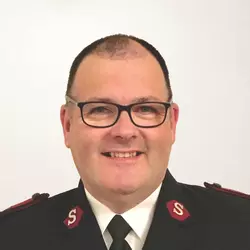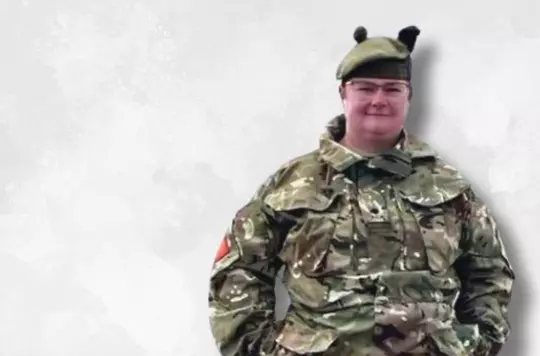9 November 2024
Romans 12: Passion for peace
Major Donald Montgomery
Major Donald Montgomery explores the essential role God’s grace plays in becoming peacemakers.
Key text
In his book Peacing Together: From Conflict to Reconciliation, David Cormack says: ‘Lasting peace remains a persistent yet illusive dream. Yet … the ability to change our behaviour is part of our human condition.’
Our study passage can help us in our quest for peace – both personally and corporately – particularly as Paul leads us towards verse 18: ‘If it is possible, as far as it depends on you, live at peace with everyone.’
The thought-provoking commencement to this chapter reminds us that, in order for peace to be experienced, it needs to start with ourselves. First, with an awareness of God’s grace and, second, with self-analysis that is grounded in reality and in accordance with the faith that God has given. We are reminded of the analogy of the physical body compared to the body of Christ, and our differing functions and the mutuality that must exist.
In 2016, this principle was articulated in Journey of Renewal, which introduced the international Salvation Army’s Mission Accountability Framework. It presents questions that arise from our desire to live in such a way that reflects something of verse 5 of our study passage. Two of the questions are: How are my relationships with people? Am I being renewed day by day?
It seems, therefore, that an honest reflection, a grounded analysis of self and a life of mutual accountability are required if we are going to see John Oxenham’s lyrics become reality: ‘Peace in our time, O Lord,/ To all the peoples – peace!/ Peace that shall build a glad new world/ And make for life’s increase’ (SASB 1010).
Pause and reflect
- Recognising the challenges and opportunities of your everyday life, what experiences are you bringing to God as you hear the call to ‘live at peace with everyone’?
- How broad is your understanding of ‘everyone’?
Paul writes that ‘each member belongs to all the others’ (v5). In his song ‘Lord, I Come to You’ (SASB 601), Geoff Bullock recognises that our hearts and minds need to be renewed by God’s grace. Similarly, verse 6 of our study passage reminds us that the awareness of God’s grace can also cause us to recognise his gifting to us. Those differing gifts are to be exercised according to faith received.
The first gift listed is prophecy. Old Testament prophets Isaiah and Jeremiah remind us that peace can be the experience of those ‘whose minds are steadfast, because they trust in [God]’ (Isaiah 26:3), and God’s will is that his people ‘seek the peace and prosperity of the city to which I have carried you into exile’ (Jeremiah 29:7).
The Wagner-Modified Houts spiritual gifts questionnaire suggests this definition: ‘The gift of prophecy is the special ability that God gives to certain members of the body of Christ to receive and communicate an immediate message of God to his people through a divinely anointed utterance.’ Paul speaks to the Church in Rome about service, teaching, encouragement, giving, leading and showing mercy; each of these characteristics finds a clear resonance in the overarching message of the Scriptures of the Old and New Testaments as – according to The Salvation Army’s first doctrine – ‘the Divine rule of Christian faith and practice’.
Pause and reflect
- Recognising the different gifts that Paul identifies in this portion of Scripture, can you identify times when you have seen them in action through others?
- How has your faith grown as these gifts have been shared?
Throughout Scripture, the call to be holy has been clearly articulated time after time, person after person, much in the same way that Paul, in Romans 1:20, makes it clear that ‘God’s invisible qualities – his eternal power and divine nature – have been clearly seen’.
Historically too, within our Movement, each generation has sought to articulate clearly the call to holiness. Called to Be God’s People, an IHQ publication from 1999, stated: ‘We call Salvationists worldwide to restate and live out the doctrine of holiness in all its dimensions – personal, relational, social and political – in the context of our cultures … while allowing for … such diversity of experience and expression as is in accord with the Scriptures.’
We also recognise that Scripture does not include every diverse reality in our modern world – and so great discernment and boundless grace are required.
Paul, in Romans 12:9–18, speaks of the sincerity of love, the devotion to each other, the spiritual enthusiasm of serving the Lord, with joy, with patience, in prayer, blessing others, rejoicing with others, living in harmony with others. Therefore, by following his encouragement not to be proud, conceited or vengeful, we arrive at the call to peace, the call to goodness, even in the face of evil.
In response to these verses from Romans, John Birch offers the following prayer in his book Sunshine and Storm: ‘Teach us to be ourselves loving God, we pray, not to be envious of others but to become the people you gifted us, in grace, to be, serving you cheerfully in workplace, community, wherever you take us today, bearers of hope, patient, kind, sharing your love, grace and joy, to the glory of your name.’
Paul urges his readers: ‘If it is possible, as far as it depends on you, live at peace with everyone… Do not be overcome by evil, but overcome evil with good’ (vv18–21). How will you respond?
Bible study by

Major Donald Montgomery
Corps Officer, Sale
Discover more

As the Israel-Gaza conflict continues, Captain Ben Cotterill highlights the need for non-polarised thinking in our interactions.

George Tanton explores how British Salvationists offered fellowship to German prisoners of war during the Second World War.

Captain Amy-Jo Battersby (Parkhead with Dennistoun) talks to Major Lynne Shaw about war, Remembrance Sunday and the difference love makes.

Corps Treasurer Gwen Smedley (Caterham) and Jackie Hopkins share the story of Uncle Jack and his D-Day Bible.
